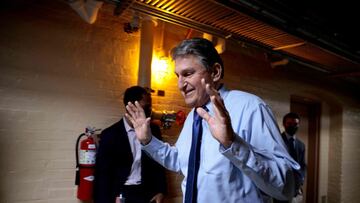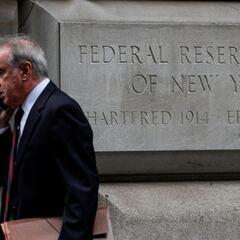Why does Joe Manchin oppose the Build Back Better bill?
The White House released a long press release detailing their disappointment with Senate Joe Manchin's decision to walk away from the Build Back Better bill


On Sunday, the White House released a heated and personal statement detailing their frustration that Senator Joe Manchin walked away from the negotiation table. Senator Manchin and President Biden had been discussing the President’s Build Back Better bill, which was passed by the House of Representatives earlier this month. Progressives have tied the fates of the bipartisan infrastructure bill, which focused on investments in traditional infrastructure, to the Build Back Better bill.
Early last week, Sen. Manchin provided the White House with “a written outline for a Build Back Better bill that was the same size and scope as the President’s framework, and covered many of the same priorities.” The Administration believed that this could represent a starting point for further discussions but instead, Manchin has made public comments that he will not be seeking to negotiate any further.
Manchin released a statement saying that he cannot explain the bill to his constituents, and after trying to negotiate a bill he felt comfortable with he felt that he had to walk away.
Related News
- The Saver’s Credit could reduce your tax bill by $2,000
- When does COLA 2022 take effect in Social Security Benefits?
- Dark clouds for stimulus checks in 2022
- Manchin rejects Build Back Better: what does this mean for the Child Tax Credit?
Why doesn’t Manchin support the bill?
In 2020, the national poverty rate in the US was 11.4 percent. In West Virginia, it was nearly five points higher at sixteen percent. Manchin says he is very worried that the bill will increase inflation, reduce the reliability of the energy grid, and increase our dependence on foreign supply chains. None of these claims were made citing or referencing the specific measures included in the bill.
The Wharton School of Business, a source often cited by Joe Manchin, has reported that what is driving inflation is the uncertainty caused by the pandemic, “the rapid economic recovery, and ongoing supply chain issues.” The group recognizes that the bill could impact consumer demand, but that because of the major shifts currently being seen in the market, “changes in inflation of a few tenths of a percentage point would likely be indistinguishable from variation in inflation expected whether the legislation is enacted or not.”
A different study to examine the impacts of the bill found that the “bill’s revenue-raising provisions decrease government debt, which offsets some of the negative effects on wages and GDP.” The bill is in part paid for by increasing taxes on corporations and the wealthy. Earlier during the negotiations, Manchin has said he opposed increasing the corporate tax rate seen before Republicans passed the 2017 Tax Cuts and Jobs Act. During the pandemic, many corporations have seen record profits, and many more progressive members of Congress believe that those benefits should be shared with their workers and customers, not just shareholders.
A recent survey of major businesses conducted by Digital.com found that more than half of businesses have raised prices for consumers beyond what would have been needed to make up for the increased operative costs.
No Labels, billionaires, and Joe Manchin
This summer a leaked video featuring Joe Manchin in a zoom call with many wealthy individuals and the political organization No Labels was leaked. The event was hosted by No Labels, an organization whose mission is to end dysfunction and gridlock in Washington by fostering bipartisanship. However, critics have argued that really the group works to create funding channels between high-net-worth individuals and special interests to moderate Republicans and conservative Democrats. No Labels is not required to report where they get their donations from and because of the Citizens United Supreme Court case, it also can give unlimited amounts to candidates and lawmakers.
At times, reporters and critics have raised the question of whether he represents the interests of his constituents or those of his corporate sponsors. Forbes reported that Manchin has received donations from fifty billionaires, a third of whom are registered to vote in New York, not his home state.
In a press release detailing his choice to walk away from discussions with the White House, Manchin wrote “the bill will also risk the reliability of our electric grid [...].The energy transition my colleagues seek is already well underway in the United States of America.”But this comes from a leader who himself has stakes in oil and gas companies, has received donations from several leaders in this sector, and opposed many measures and bills to put the United States on a path to net-zero.
Related stories

Stimulus checks in 2022: how long will the Federal Reserve keep paying them?
Regardless of the bill, one fact is clear, West Virginia needs support. Throughout the 20th century, the state saw massive investments in the coal sector, and in 1990 more than 100,000 West Virginians worked in the industry. By 2019, this number had fallen to 14,000. Much of this was not caused by competition from renewable energies, rather the decreasing costs of natural gas and automation.
What is Joe Manchin calling for?
Manchin has said that he is not opposed to various pieces included in the bill but would like to see them passed as standalone legislation. However, with Republicans showing no signs of support the Senate would not be able to pass the bills when considering the sixty-vote filibuster. If Manchin is interested in providing stand-alone bills, he should draft them and bring them to the floor. But what many progressives are frustrated with is rejecting that plan, thus abandoning the campaign promises that got them elected, and providing no other solutions.
